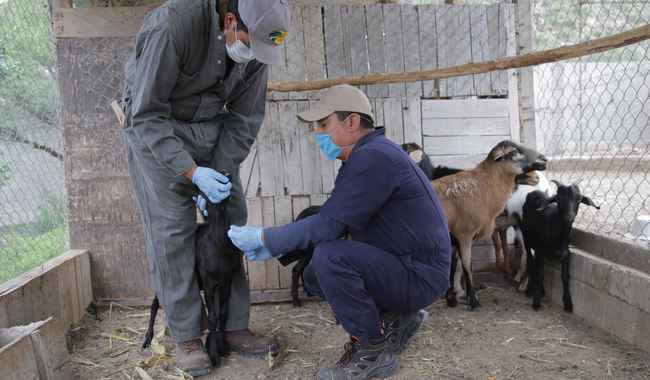In order to protect Tabasco's livestock heritage and the livelihood of thousands of families, the National Service for Agri-Food Health, Safety and Quality (Senasica) urged the state's livestock producers to join the National Campaign for the Prevention and Control of Rabies in Cattle and Livestock Species, which operates in 26 states in the country.
The agency of the Ministry of Agriculture and Rural Development informed that so far this year the General Directorate of Animal Health has confirmed, through laboratory tests, 26 positive cases of rabies in the state, of which 22 are bovines, one equine and three hematophagous bats, also known as vampires, which act as transmitters of the disease.
Among the municipalities affected with a case of bovine rabies are Balancán, Cunduacán, Jonuta and Macuspana, with three cases in Nacajuca and Huimanguillo, with five cases in Centla and seven in Centro, while the confirmed case in an equine occurred in Emiliano Zapata, and the three vampires were located in the municipalities of Nacajuca, Jonuta and Emiliano Zapata.
Senasica emphasized the importance of preventive vaccination to control paralytic rabies and stressed that of the 459,552 doses of vaccine applied nationally, in Tabasco 43,180 doses of rabies vaccine have been applied in the first quarter of 2023 to cattle in the municipalities of Balancán, Centla, Centro, Emiliano Zapata, Huimanguillo, Jalapa, Jonuta, Nacajuca, Tacotalpa and Tenosique. To date, this represents 9.3 percent of the national total, as part of the preventive actions and attention to the presence of the disease.
During this period, specialists from Senasica and the Committee for the Promotion and Protection of Livestock of the State of Tabasco gave 18 training sessions to 240 producers in the state, in order to transmit the importance of vaccination to avoid the effects of the disease and to specify the best preventive actions to be implemented..
Likewise, veterinarians have attended 23 notifications from producers for suspicion of paralytic rabies, in 300 farms and neighboring farms that group more than 18,000 animals.
As part of the campaign, Senasica technicians carried out 13 operations to capture hematophagous bats, in which 276 specimens were captured for control and elimination.
It is important to point out that Aguascalientes, Baja California, Baja California Sur, Coahuila, Mexico City and Tlaxcala have no presence of this type of bats, which is why they are recognized as free of the disease, while in Tabasco the disease is endemic due to the presence of the vampire bat.
Currently, the National Campaign for the Prevention and Control of Rabies in Cattle and Livestock Species maintains 55.87 percent of the national territory as a disease-free zone and the remaining 44.13 percent in the control phase.
